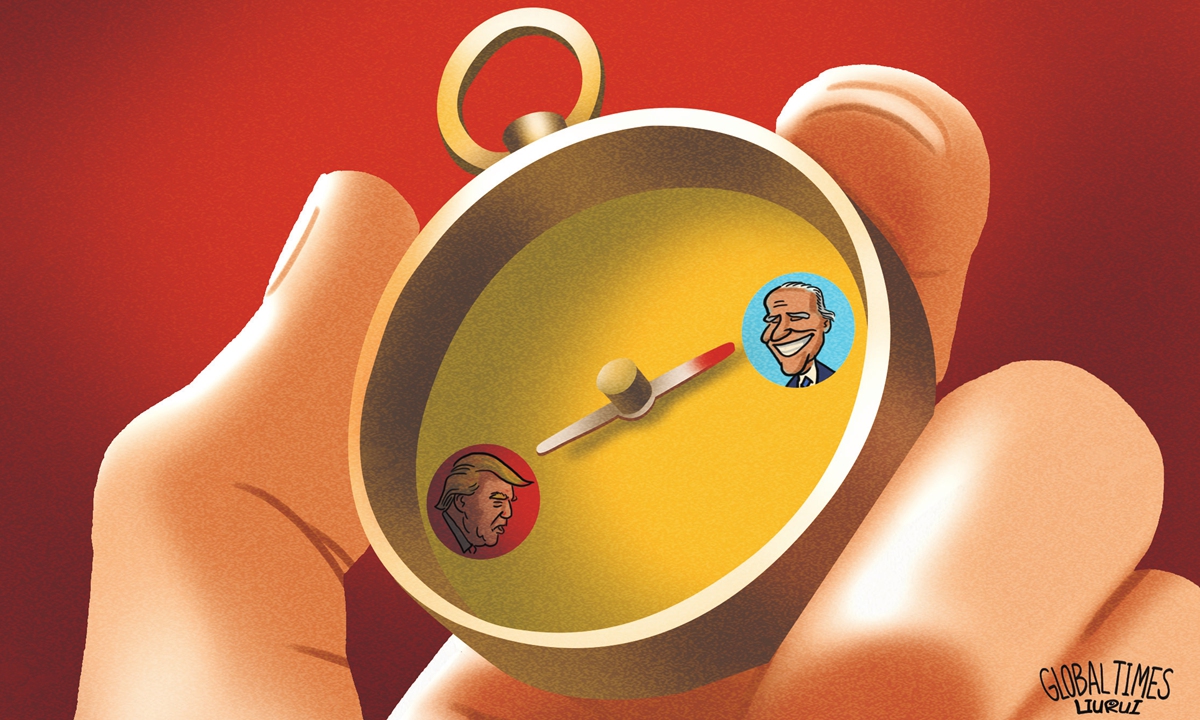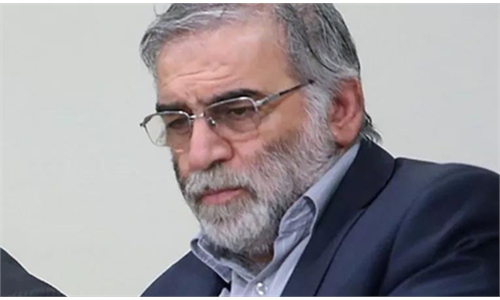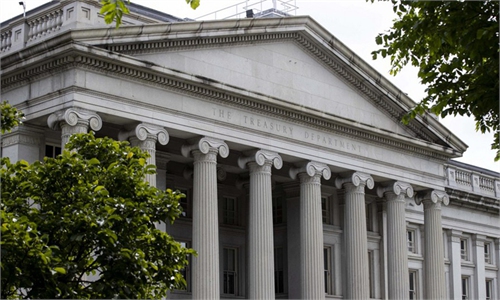
Illustration: Liu Rui/GT
The Electoral College confirmation of Joe Biden clears his path to be sworn in as the 46th US president on January 20, 2021.
Biden's win is generally regarded as the US' return to the global stage and a reversal of the anti-establishment elements represented by outgoing President Donald Trump. As former vice president of the Obama administration, Biden's attitude on the issue of the Iran nuclear deal, or the JCPOA, is very different from that of the Trump government.
The Democratic president-elect adheres to the basic attitude toward US-Iran relations that existed in the Obama administration. Biden even publicly stated that he still holds previous perspectives on the Iran nuclear deal - and if Tehran returns to "strict compliance with the nuclear deal," Washington will rejoin the plan. However, Tehran says it will negotiate only if Washington lifts sanctions.
Iran has a basic logic for its attitude toward Biden. First, Iran's national character is defined by strong pride. Although it hopes to ease relations with the US, it does not want to be completely bossed around by the US government.
Second, Iran has yet to fully restore confidence in the US. Although Biden raised the possibility of the US' returning to the JCPOA, there is still more than a month before he officially takes office. During this period, the Trump administration still has a firm control of US policy toward Iran. It may even adopt more radical moves.
On December 10, Morocco agreed to normalize relations with Israel in a deal brokered with the Trump administration's help, making it the fourth Arab country that has done so in 2020. This further demonstrates an expansion of the quasi-alliance between Israel and "moderate Arab states." Iran has reasons to doubt the Trump administration's motives and actions to further trash US-Iran relations before the end of his term.
Last, Iran is still calculating what Trump's legacy will mean to the Biden administration, and to US society. Despite the failure of Trump's reelection, the impact of "Trumpism" on the US is still obvious. There is a possibility that after the Biden administration takes office, Trumpism without Trump being president could still affect Biden's foreign policy, to a certain extent.
Nonetheless, although Biden will unlikely alter the latest breakthroughs in Arab-Israel relations that the Trump administration has fostered, there is still room for US-Iran relations to turn the tide. On the one hand, the Biden administration represents the return of the US' "establishment" camp that focuses on the multilateral global order. US relations with Iran in recent years have been built on "cold peace." Now, the US hopes to exert pressure on Iran to force it to make a change. A fundamental purpose is to foster Iran's internal social transition, thus seeking relative balance in the Middle East. Under such circumstances, there is a possibility of compromise between the Biden administration and Iran to lift sanctions against Tehran.
On the other hand, the Biden administration represents the return of the traditional US, which includes president's personal prudent behavior, maintenance of US global reputation and respect for the international system. Unlike the Trump administration, which is perverse and accustomed to bullying, the Biden administration is more likely to restore US credibility after taking office.
In the long run, US-Iran relations under Biden may return to the basic framework of the Iran nuclear deal, but frictions still exist on some specific issues of the agreement. In addition, the continuous breakthroughs of Arab-Israel ties will, to a large extent, create new constraints on US-Iran relations.
The author is a professor of Middle East Studies Institute at Shanghai International Studies University. opinion@globaltimes.com.cn



